The year 2025 marked an important milestone in the activities of CLARIN Latvia (CLARIN-LV, as it continued to expand and enhance its repository of language resources and tools. 
Throughout the year, CLARIN-LV actively introduced the CLARIN research infrastructure to students, academic staff, and researchers highlighting its value for research and innovation. CLARIN Latvia also strengthened national and international collaboration, fostered knowledge exchange within Latvian research community and CLARIN ERIC consortium.
To promote access to high-quality data for researchers in the humanities and social sciences, the CLARIN-LV repositorywas enriched with new digital language resources, including speech corpora, lexical databases, and dictionaries. The most viewed language resources from the repository were Tēzaurs.lv (more than 1000 views per month), the Balanced Corpus of Modern Latvian (around 250 views per month), and the LATE Dev&Test Set for ASR (around 220 views per month). Significant contributions to the repository’s content were made by the DHELI and Language Technology Initiativeprojects. Although most language resources are open access, more than 120 users have registered in the CLARIN-LV repository—not only from Latvia, but also from the Netherlands, Iceland, Poland, Sweden, and other countries.
In cooperation with other members of the CLARIN ERIC consortium, the CLARIN Flagship Project PressMint was launched to compile a multilingual, comparable, annotated, translated and interoperable set of corpora of European historical newspapers from around the start of the 20th century. Two CLARIN-LV consortium members - the National Library of Latvia and the Institute of Mathematics and Computer Science of the University of Latvia – participates in this project. CLARIN-LV also became a member of the CLARIN Knowledge Centre on Large Language Models for the Humanities and Social Sciences (LLMs4SSH), established in 2025.
CLARIN infrastructure and language resources were introduced to the computer science students in the course “Fundamentals of Language Technologies” as well as to linguistics students in the course “Introduction to Computational Linguistics.” In December, CLARIN-LV organized a practical workshop for university teachers on the Digital Humanities course registry, where participants learned how to register courses.
The CLARIN Annual Conference took place in Vienna from September 30 till October 2. 
The CLARIN Annual Conference is the main annual event for those working on the construction and operation of CLARIN across Europe, as well as for representatives of the communities of use in the humanities and social sciences. This year conference focused on language technologies in the age of artificial intelligence. At the CLARIN Bazaar session associate professor Zigrīda Vinčela from the Faculty of Humanities at the University of Latvia introduced to the use of CLARIN tools for the extraction of linguistic expression of identity from the works of Latvian diaspora writers (see poster). Researchers from the Institute of Mathematics and Computer Science at the University of Latvia presented speech resources available from the korpuss.lv and CLARIN-LV repository and introduced to the LATE platform for transcribing speech data (see poster). In PhD poster session, doctoral students from the CLARIN consortium countries presented their research. Latvia in this PhD session was represented in this session by RTU Liepāja doctoral student Guna-Rābante Buša with a poster presentation on the phonetical changes of the consonants in the connected speech.
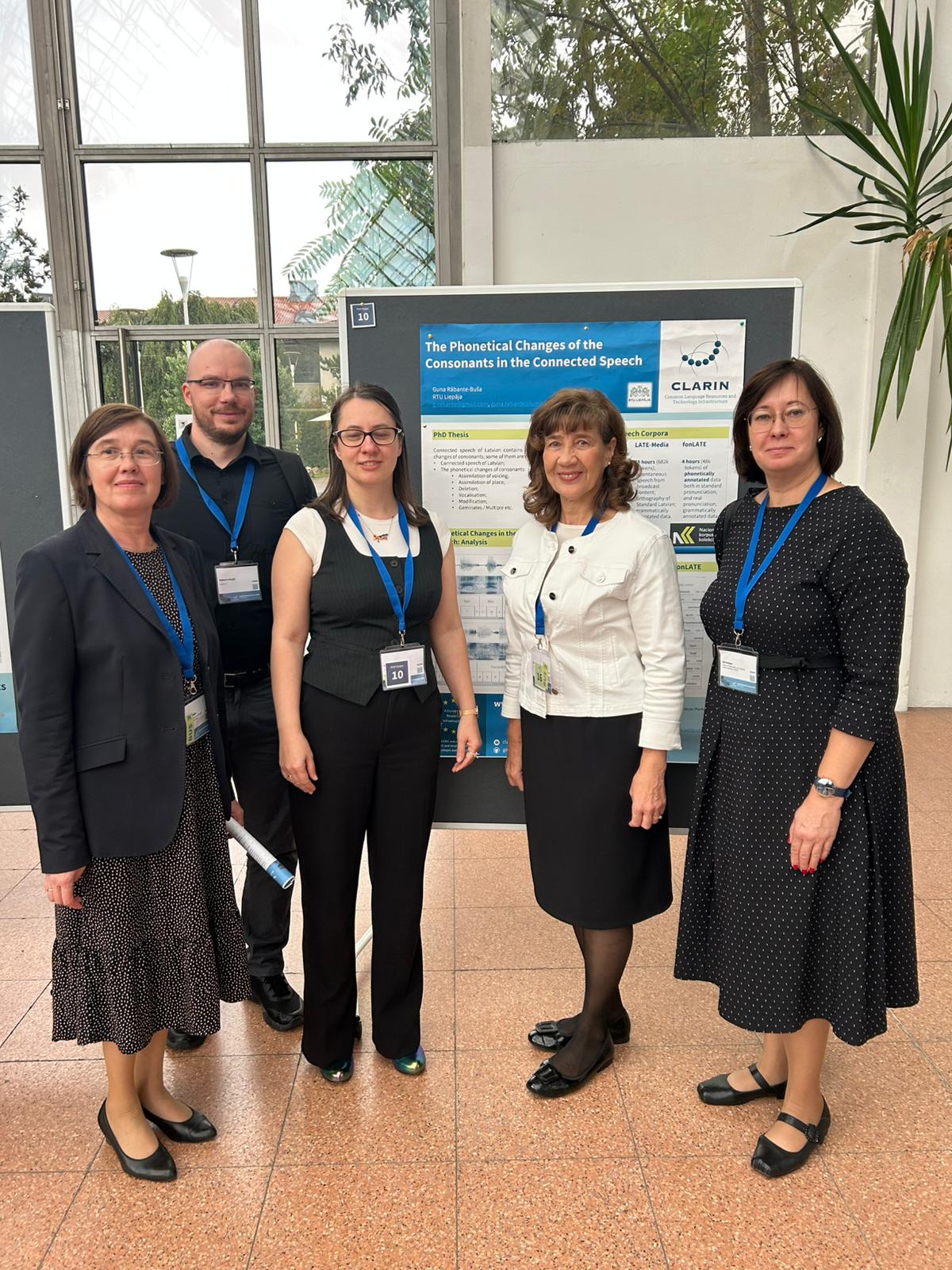 .
. 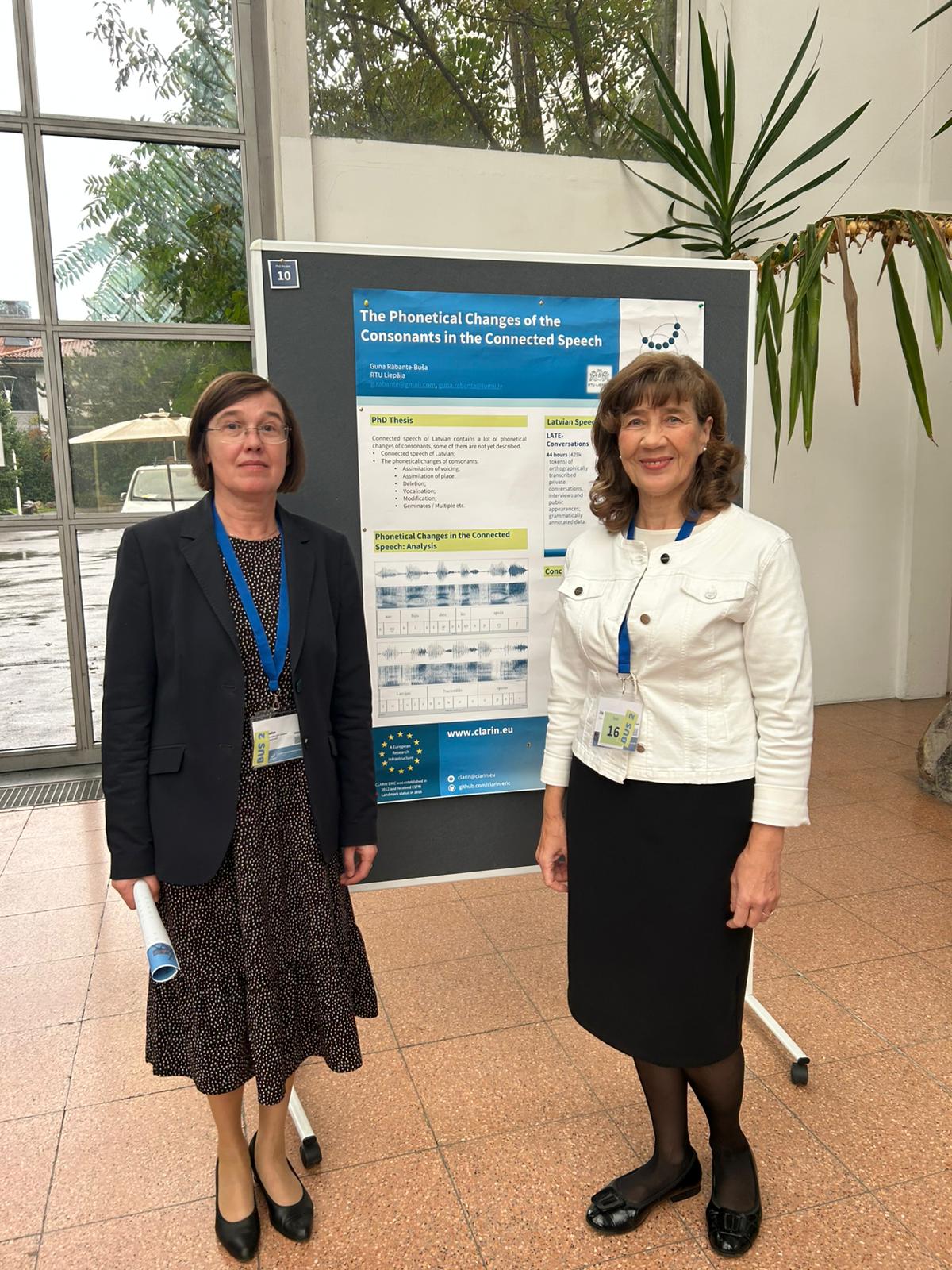 .
. 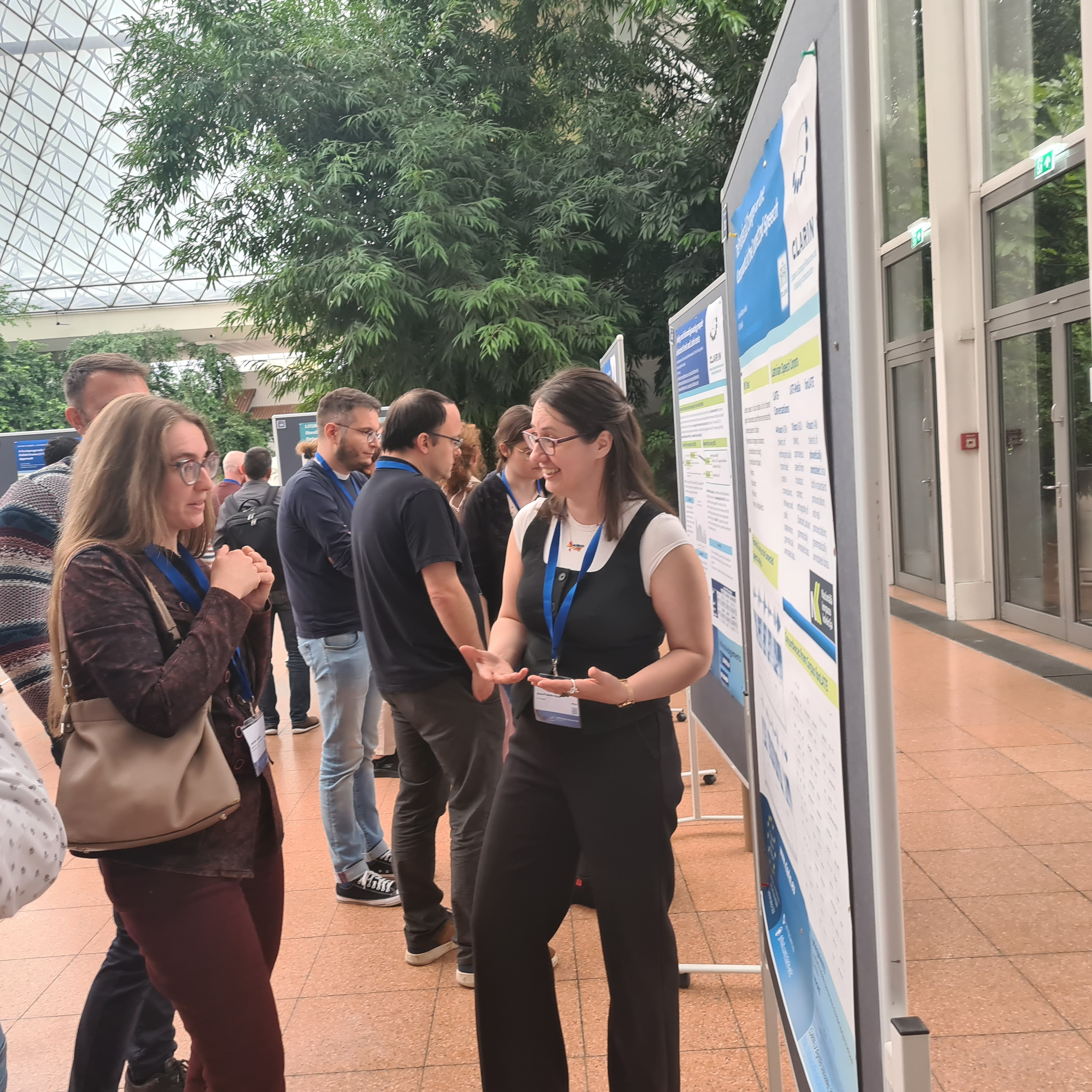
The 6th Baltic Summer School of Digital Humanities (BSSDH 2024) "Large Language Models and Small Languages" took place at Riga on July, 22-26. The summer school was supported by CLARIN ERIC.
Normunds Grūzītis and Artūrs Znotiņš presenting at the workshop "Creating and Analysing Multilingually Comparable Text Corpora"
The CLARIN ERIC supported keynote of Javier de la Rosa from the the Artificial Intelligence Lab at the National Library of Norway about the large language models and artificial intelligence at the National Library of Norway. This lecture demonstrated innovative applications of AI within the context of Norway's national repository of knowledge and cultural heritage, from enhancing cataloging to improving accessibility.
At the summer school CLARIN-LV team was responsible for workshop "Creating and Analysing Multilingually Comparable Text Corpora". During the workshop participants explored methods and pipelines for transforming an unstructured text collection into a grammatically annotated text corpus. The workshop emphasized the use of Universal Dependencies for uniform annotations, facilitating queries and linguistic analysis across multilingual corpora, such as ParlaMint.
The CLARIN Annual Conference took place in Barcelona from October 15 till October 17. 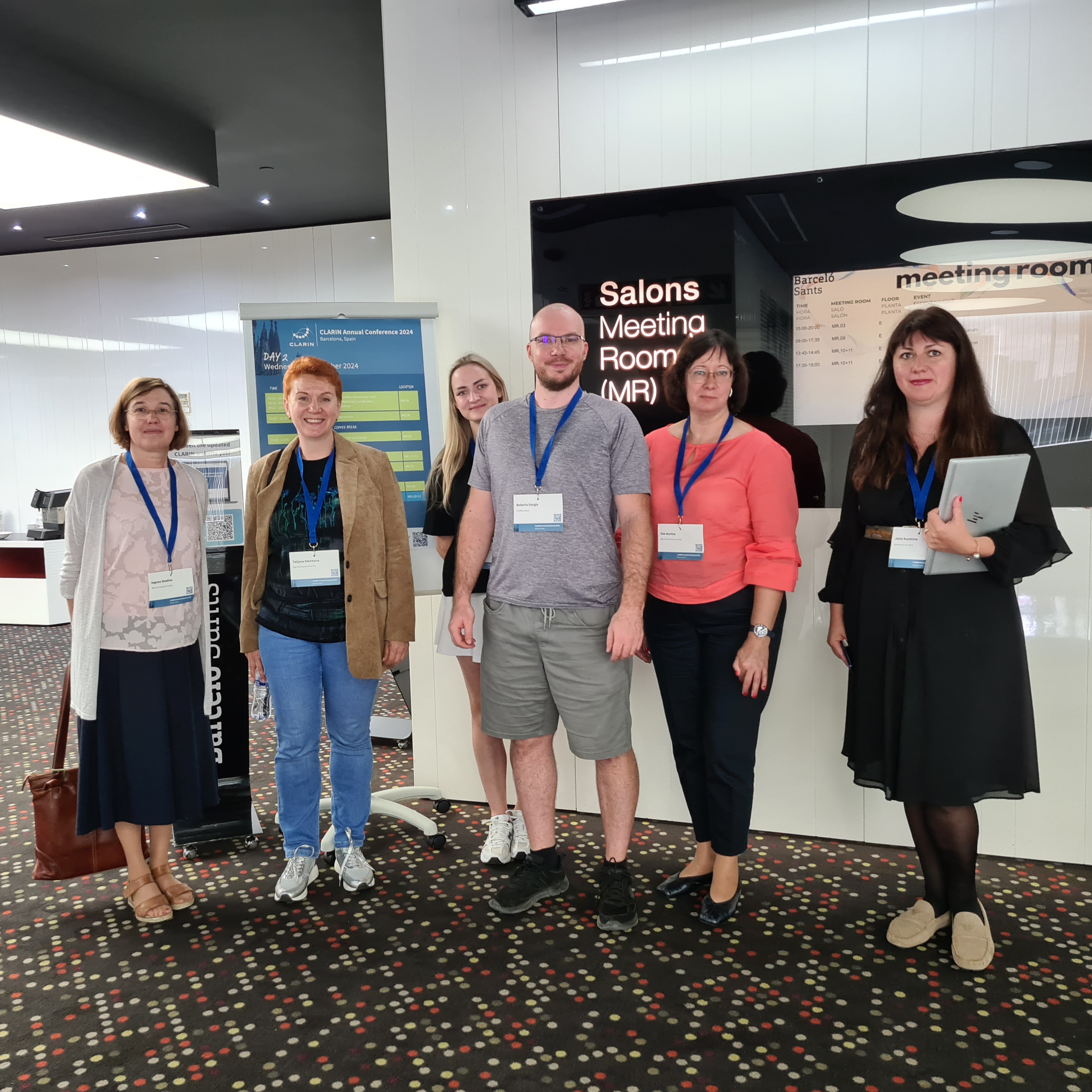
CLARIN2024 brought together more than 200 in-person participants and close to 150 online participants from the humanities and social science communities to exchange ideas and experiences with the CLARIN infrastructure. Several abstract presentations and posters from Latvia were included in the conference programme. The consortium of the Language Technology Initiative project presented the paper "Language Technology Initiative - Bridging the Gap between Research and Education" and Anda Baklāne from the National Library of Latvia presented the poster paper "Text collections as data at the National Library of Latvia", while Ieva Auziņa, PhD student of the University of Latvia, participated in the doctoral session year with a poster report "Grammatical relations and semantics of Latvian prepositions, adverbs and prefixes in connection with verb". The conference was followed by the workshop "Comparable and Interoperable Corpora", in which Roberts Darģis presented the corpus of summaries of doctoral theses Disertācijas, included in the CLARIN-LV repository. A collection of CLARIN 2024 conference abstracts can be found here.
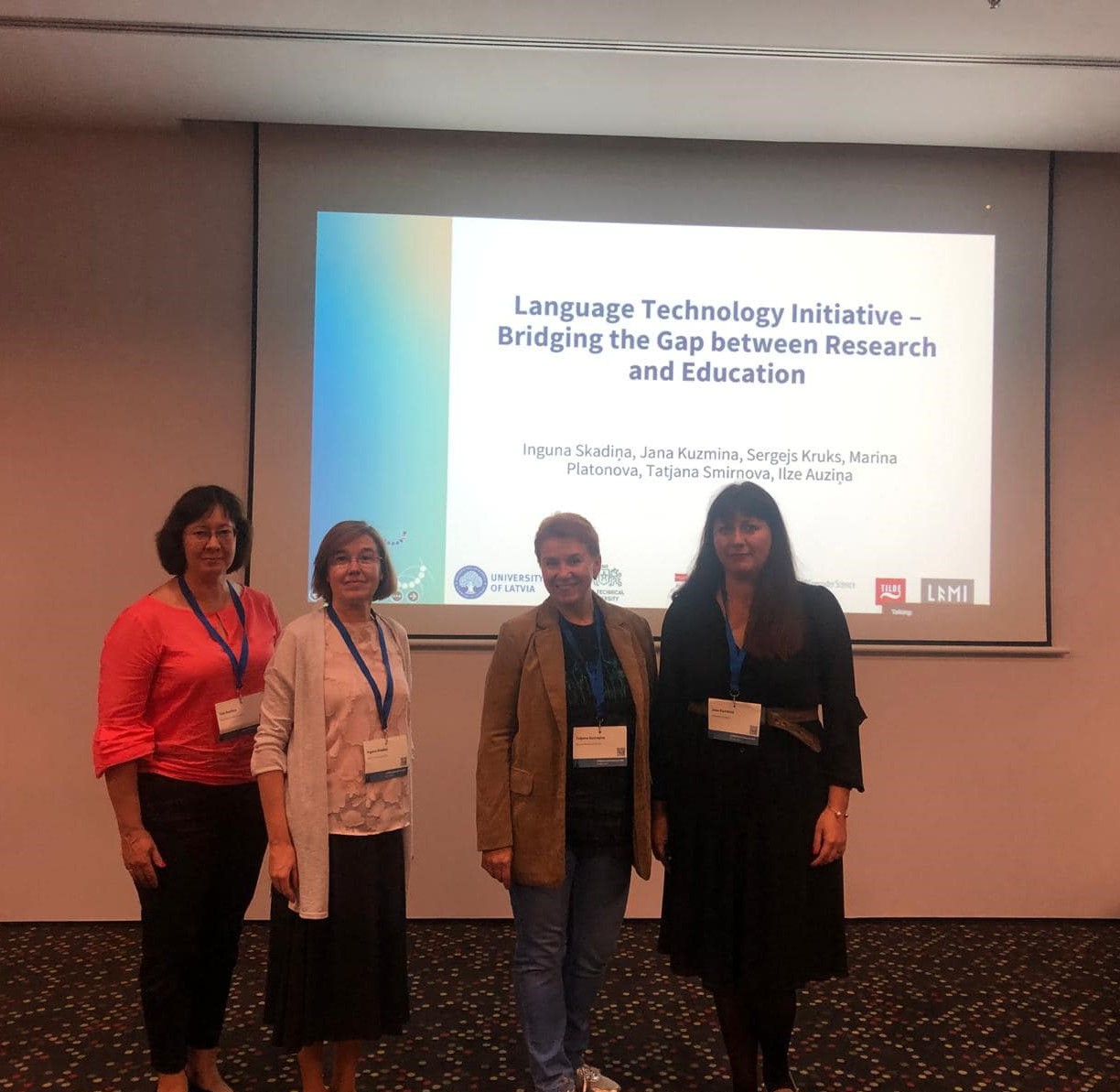
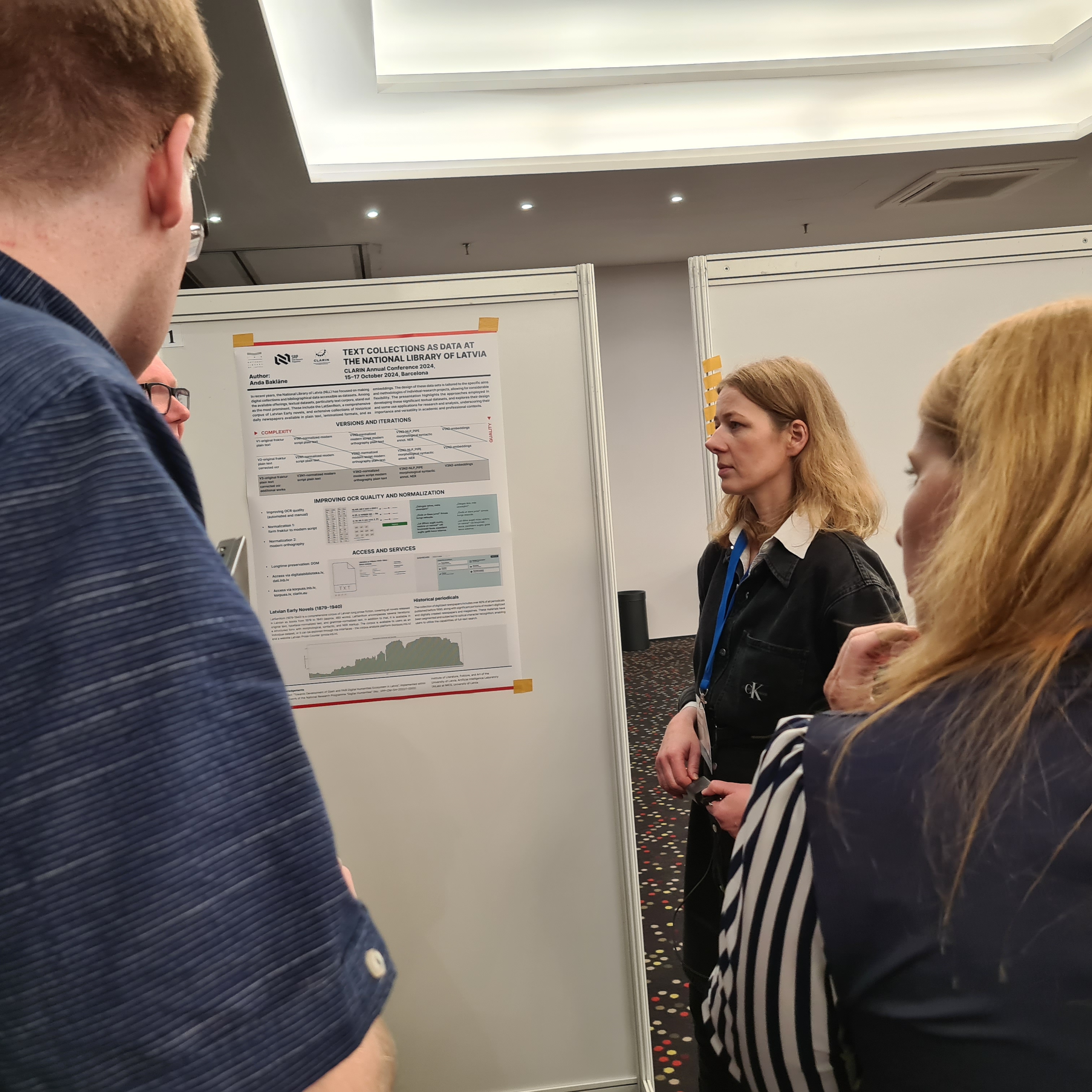
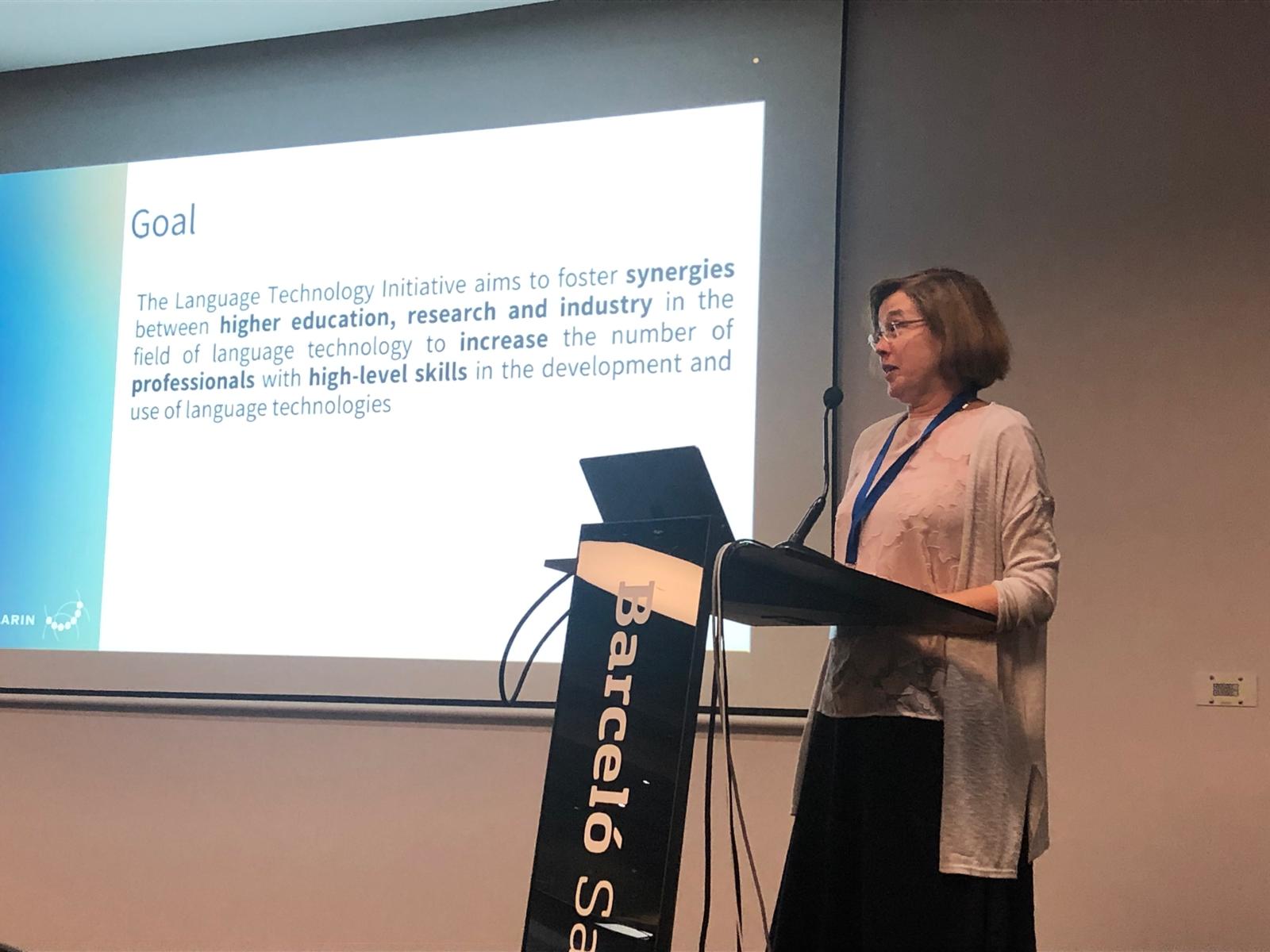
The Baltic Digital Humanities Forum took place on April 25-26. The Forum started with the panel discussion Shaping Tomorrow: European Research Infrastructures in Humanities and the Role of National Policies, by invited speakers from the European infrastructures and the representatives from the ministries.
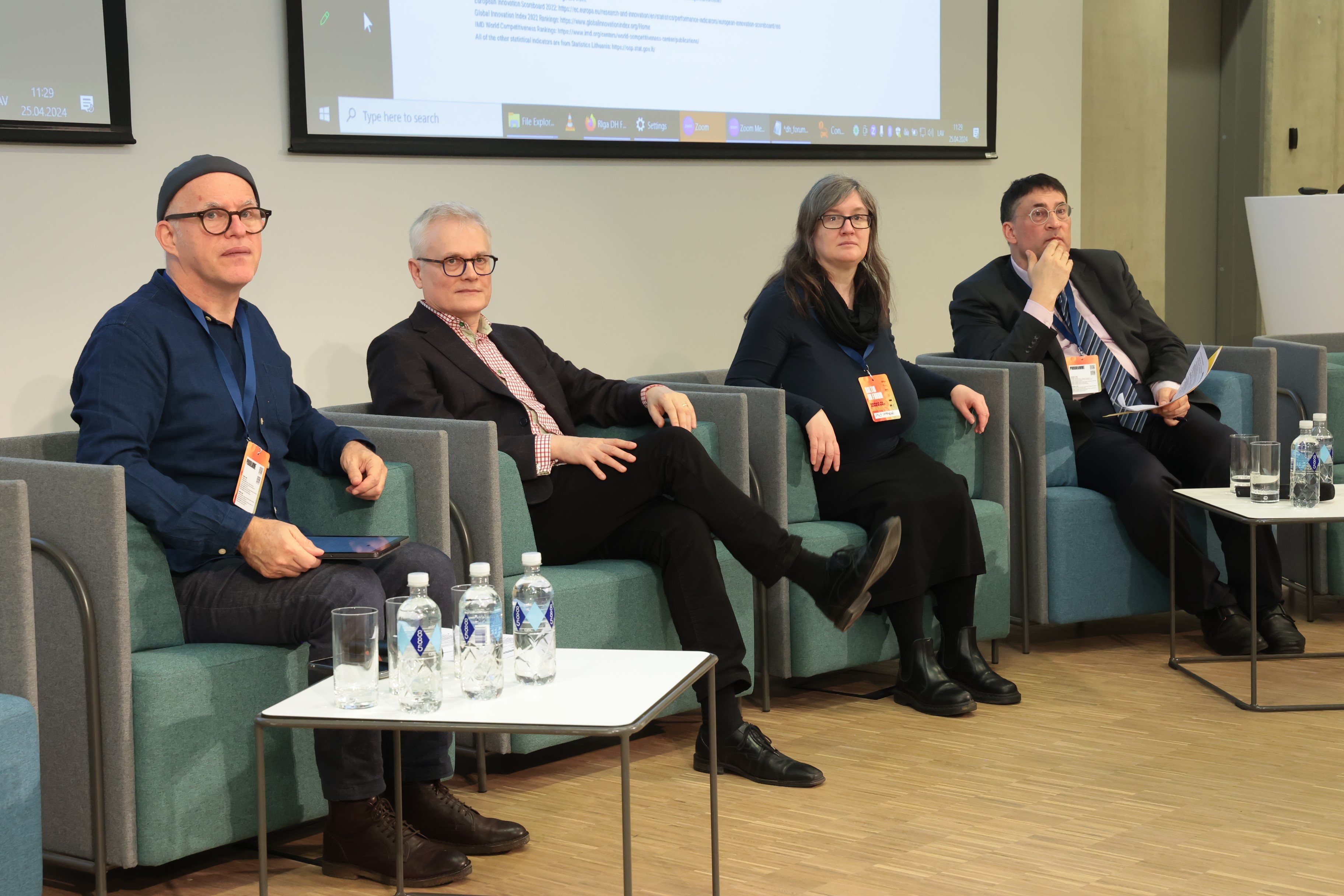
Krister Lindén (chair of CLARIN National Coordinator Forum) at the panel introduced to the CLARIN and its offer and role in Digital Humanities.
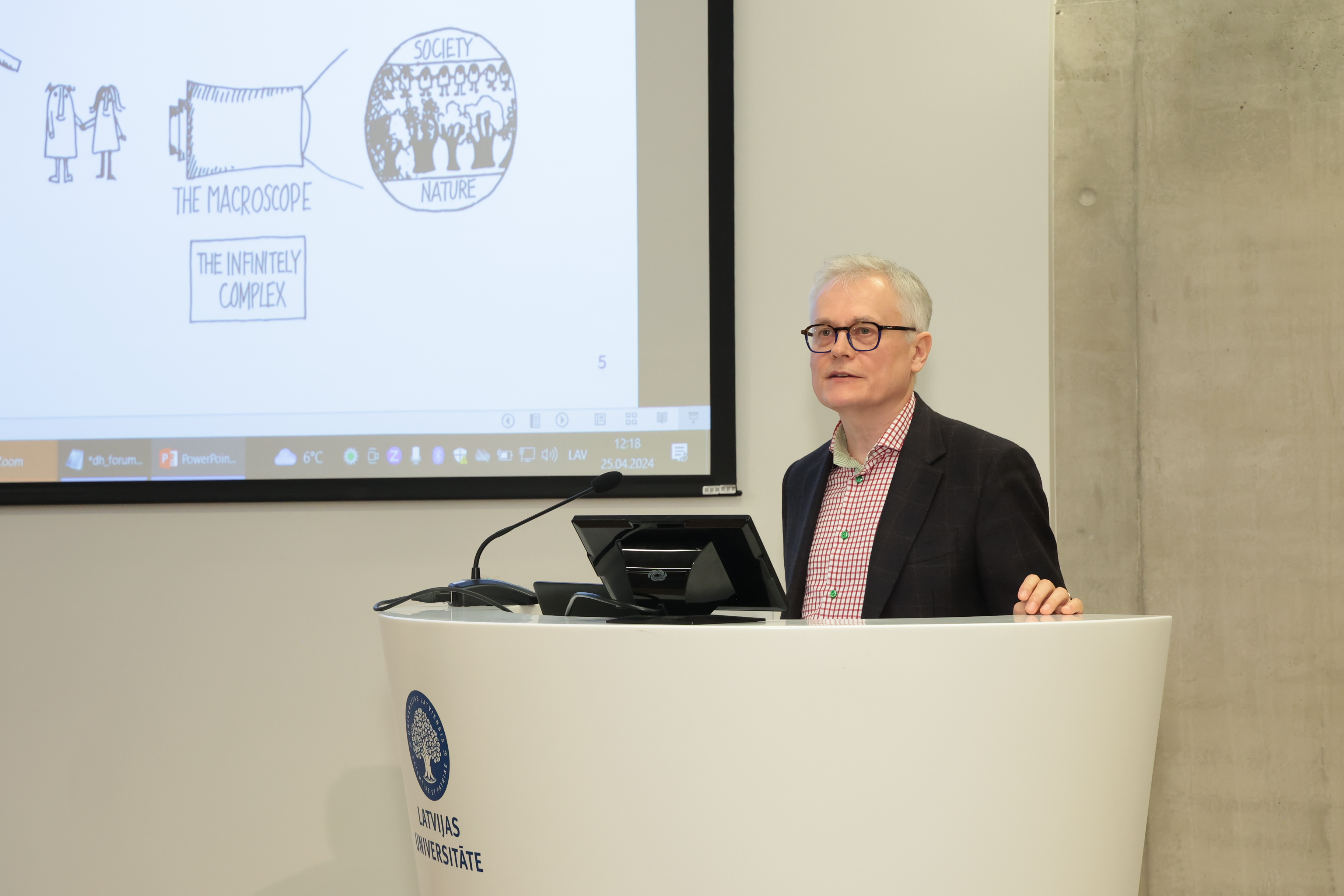
Krister Lindén introduces CLARIN ERIC (Photos by Jānis Brencis)
The second day started with panel discussion "Language Technology in Higher Education: Future Directions and Collaboration", followed by two poster sessions providing an opportunity to present DH projects, showcase developed digital resources and tools, and introduce educational initiatives. Poster presentations from this day are available here.
Page 1 of 6



